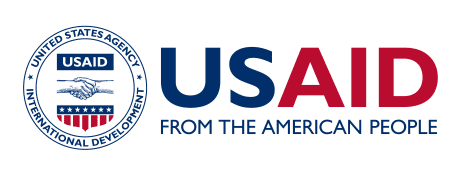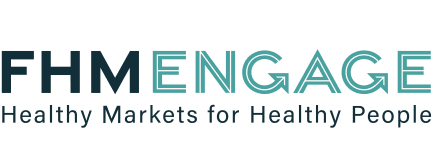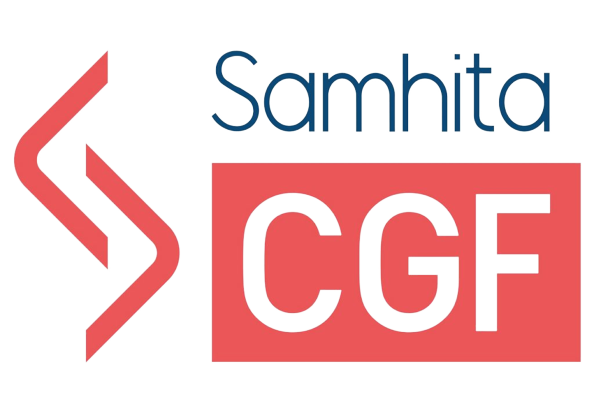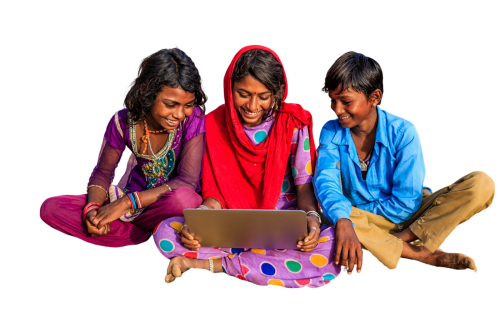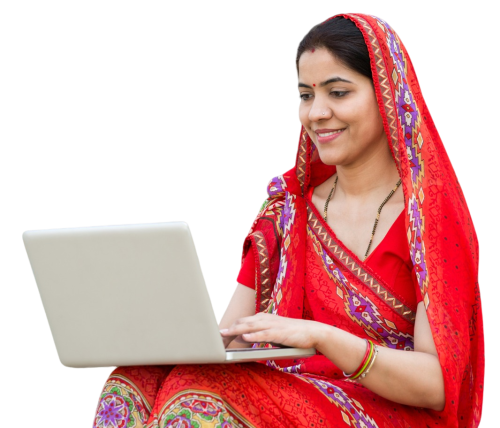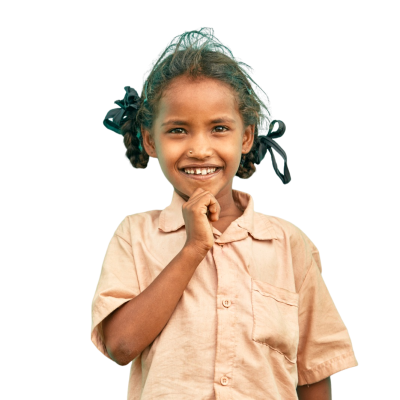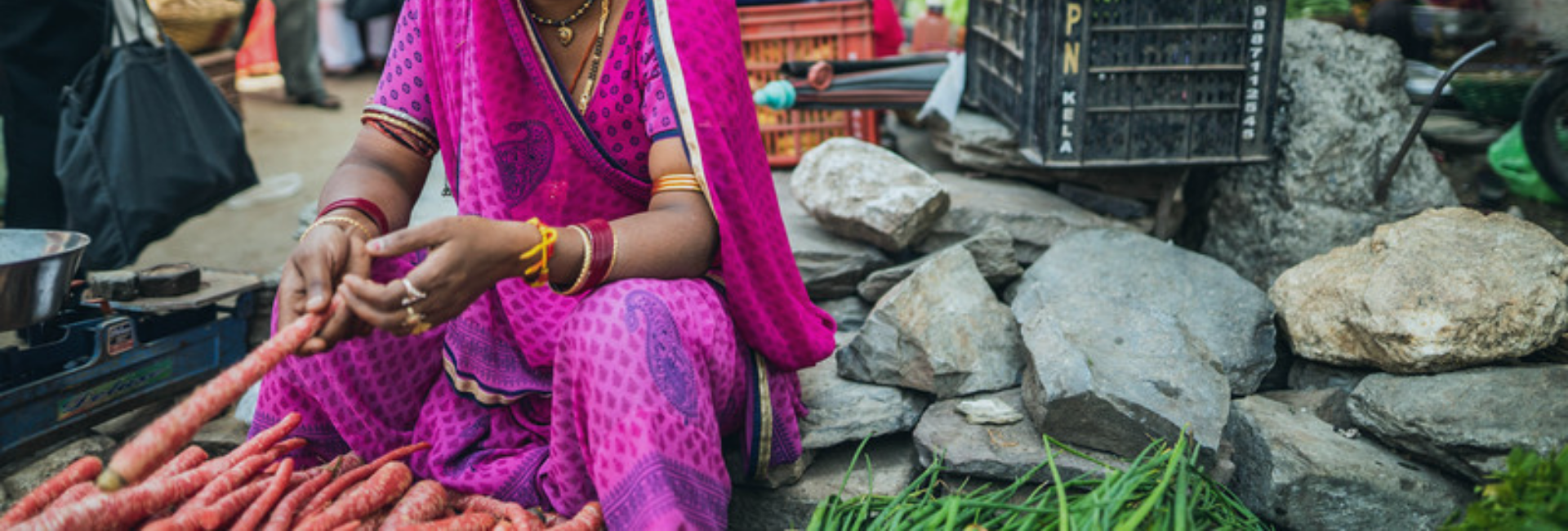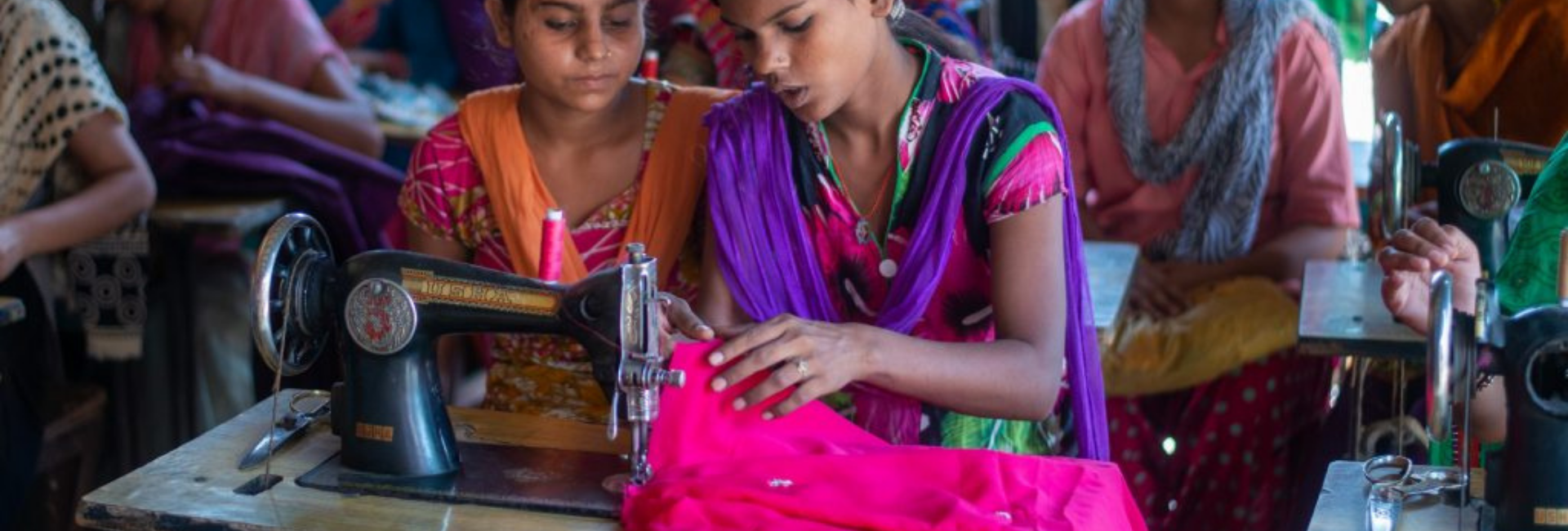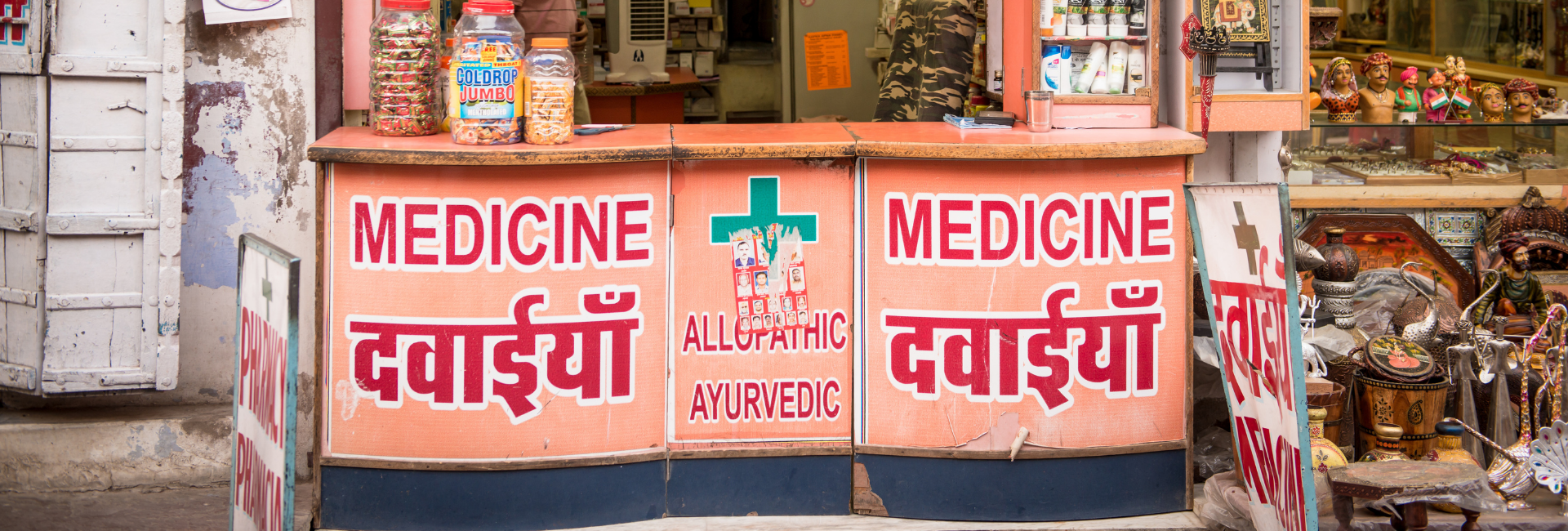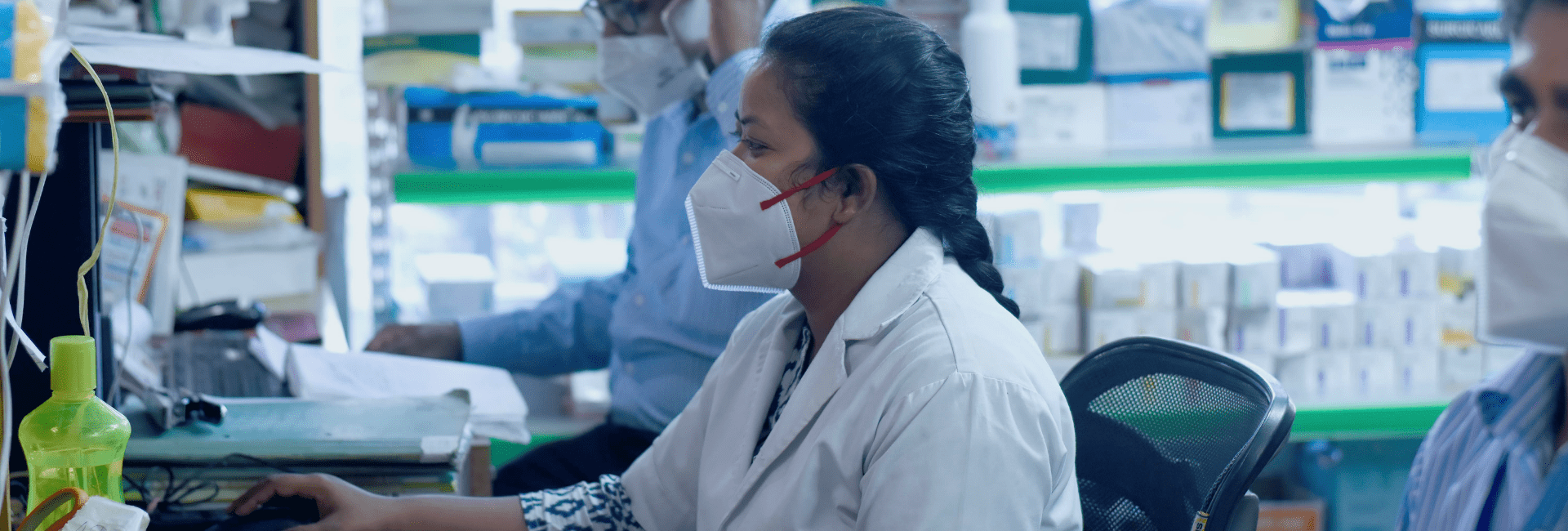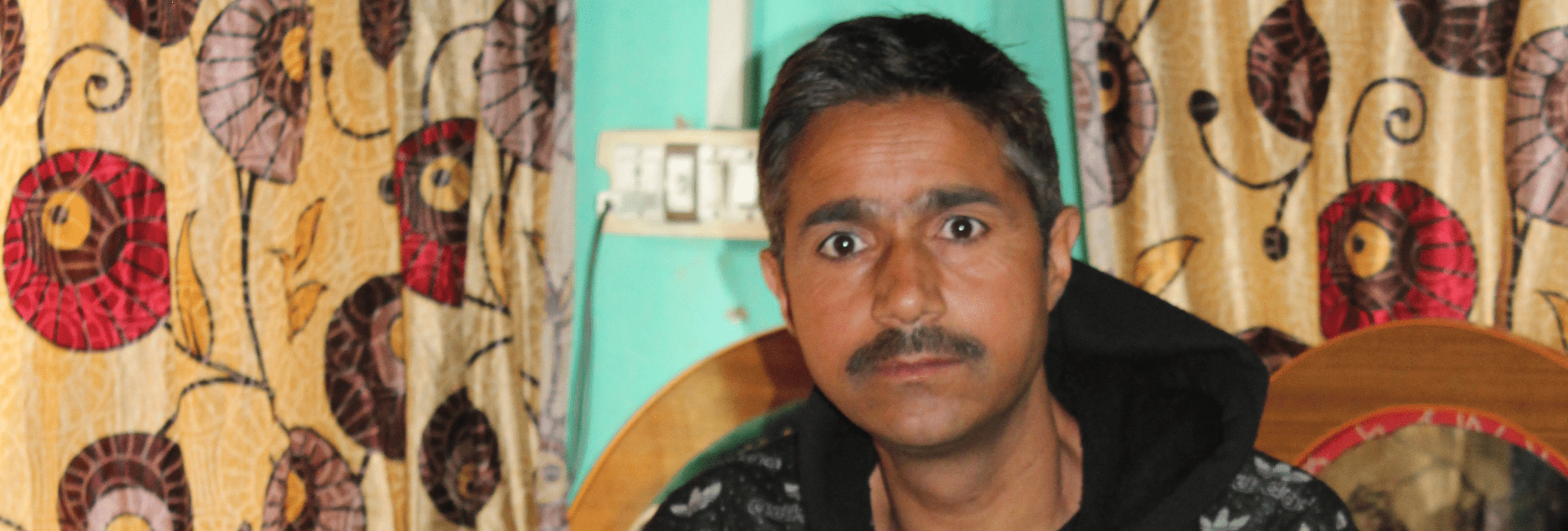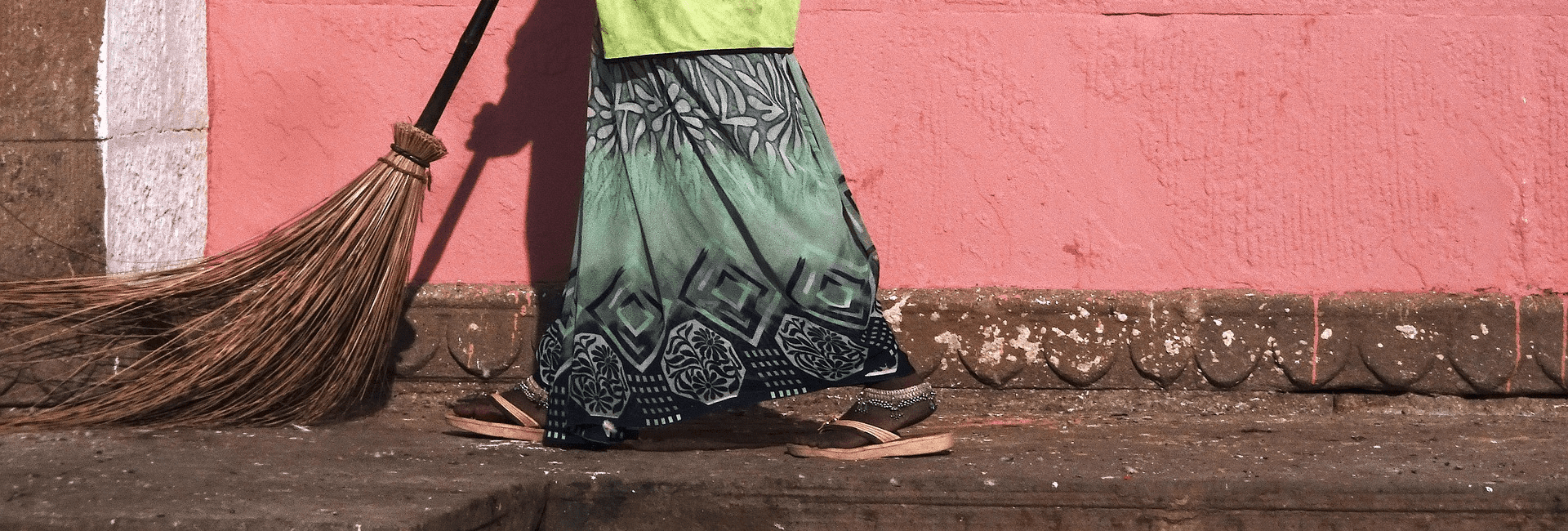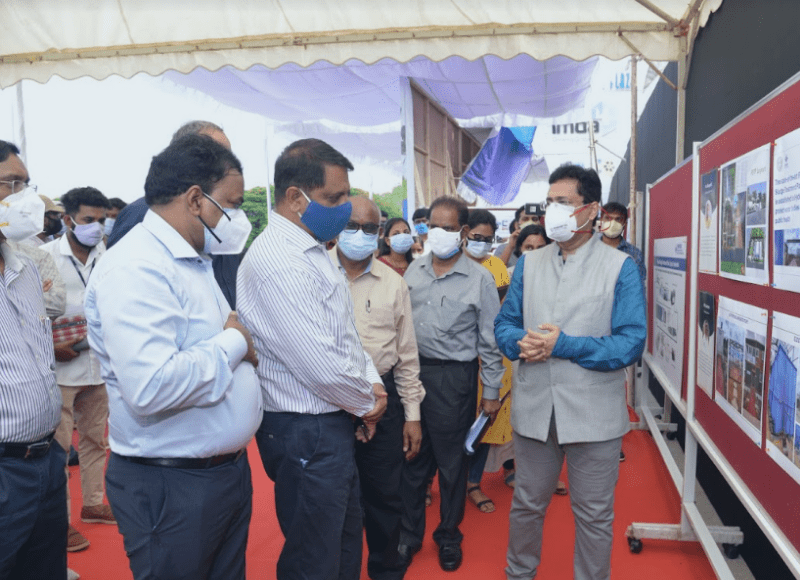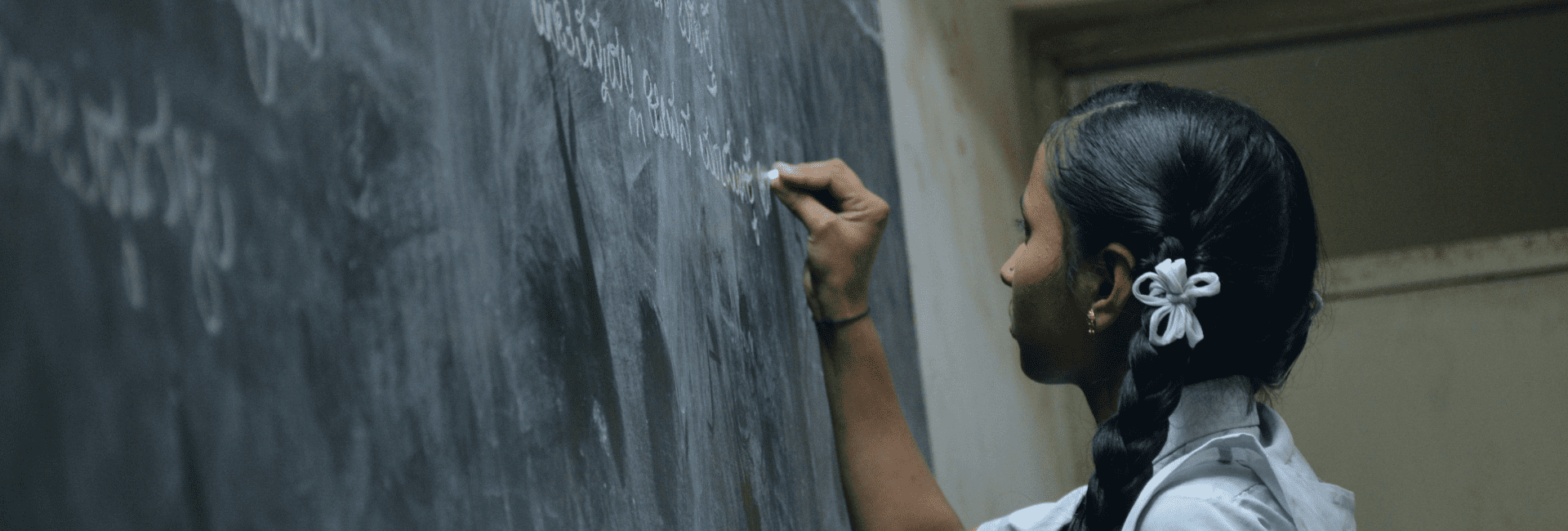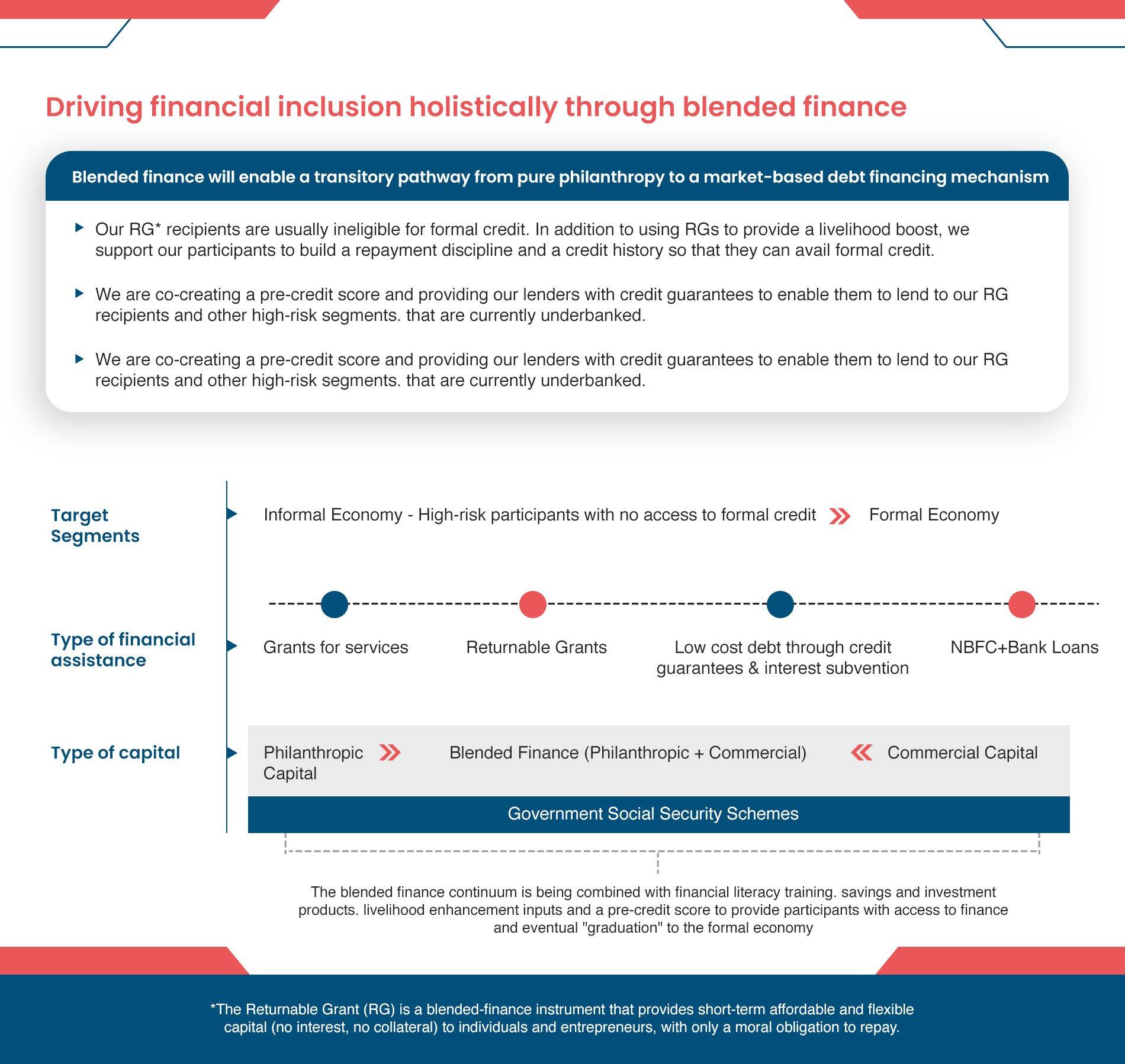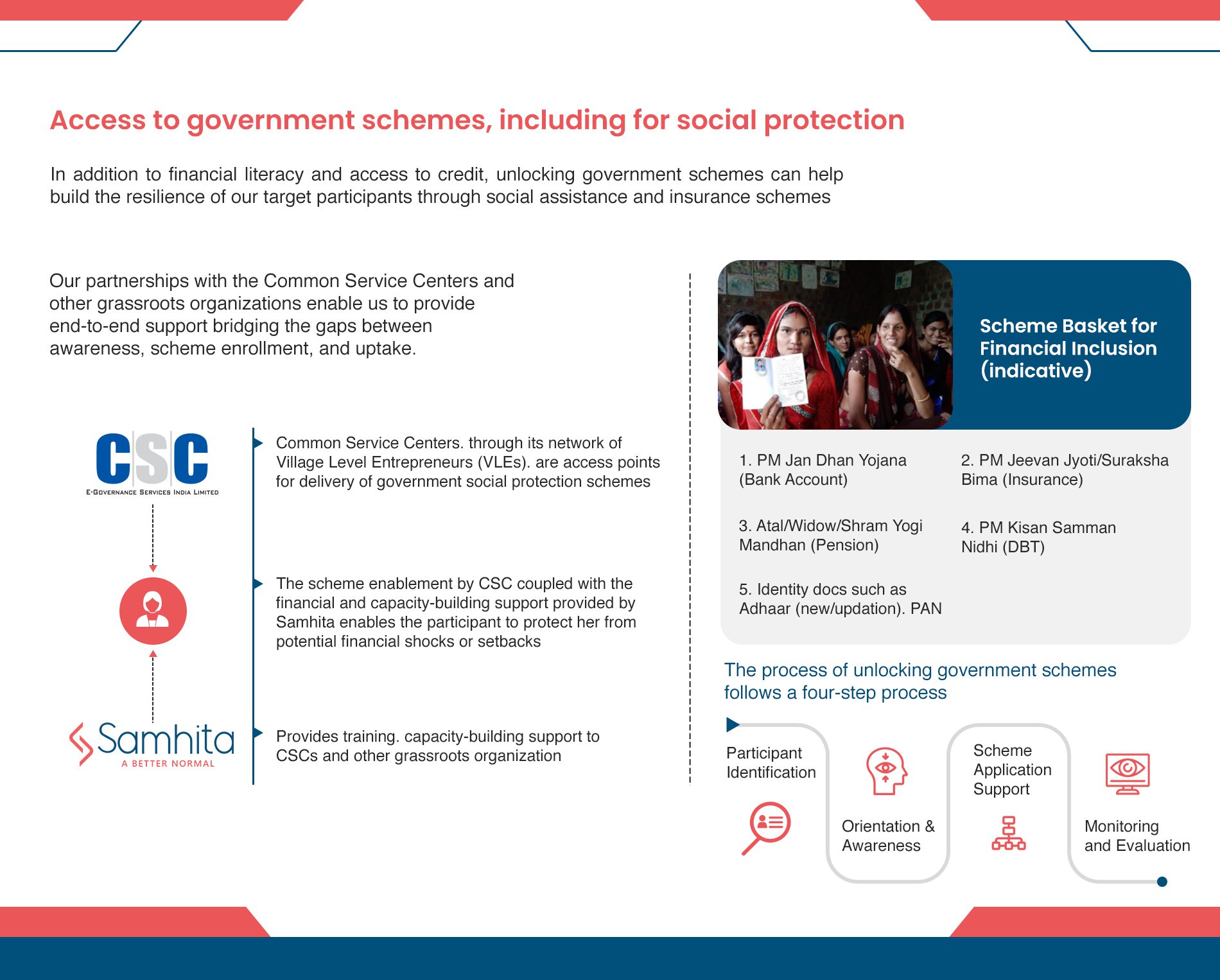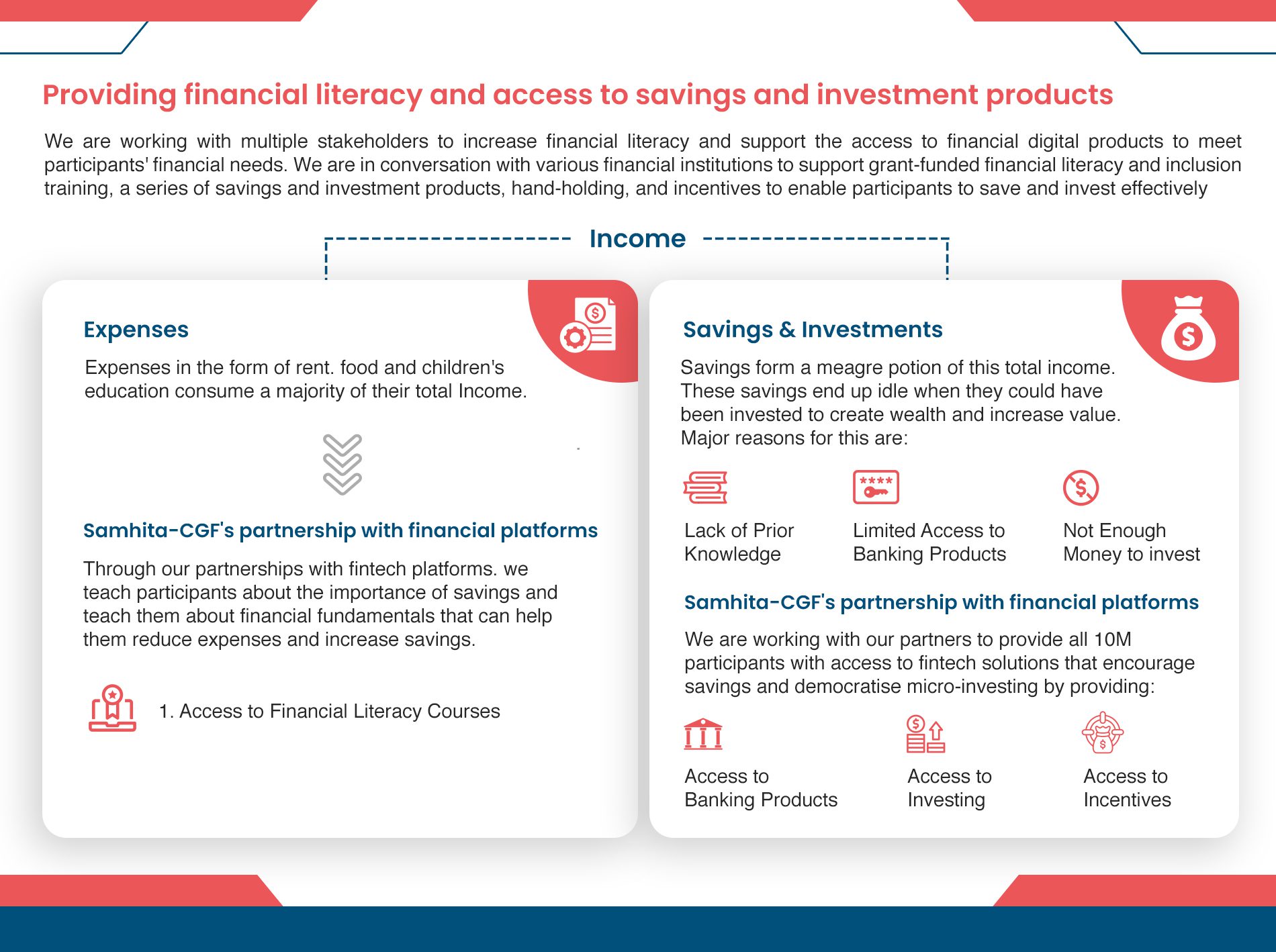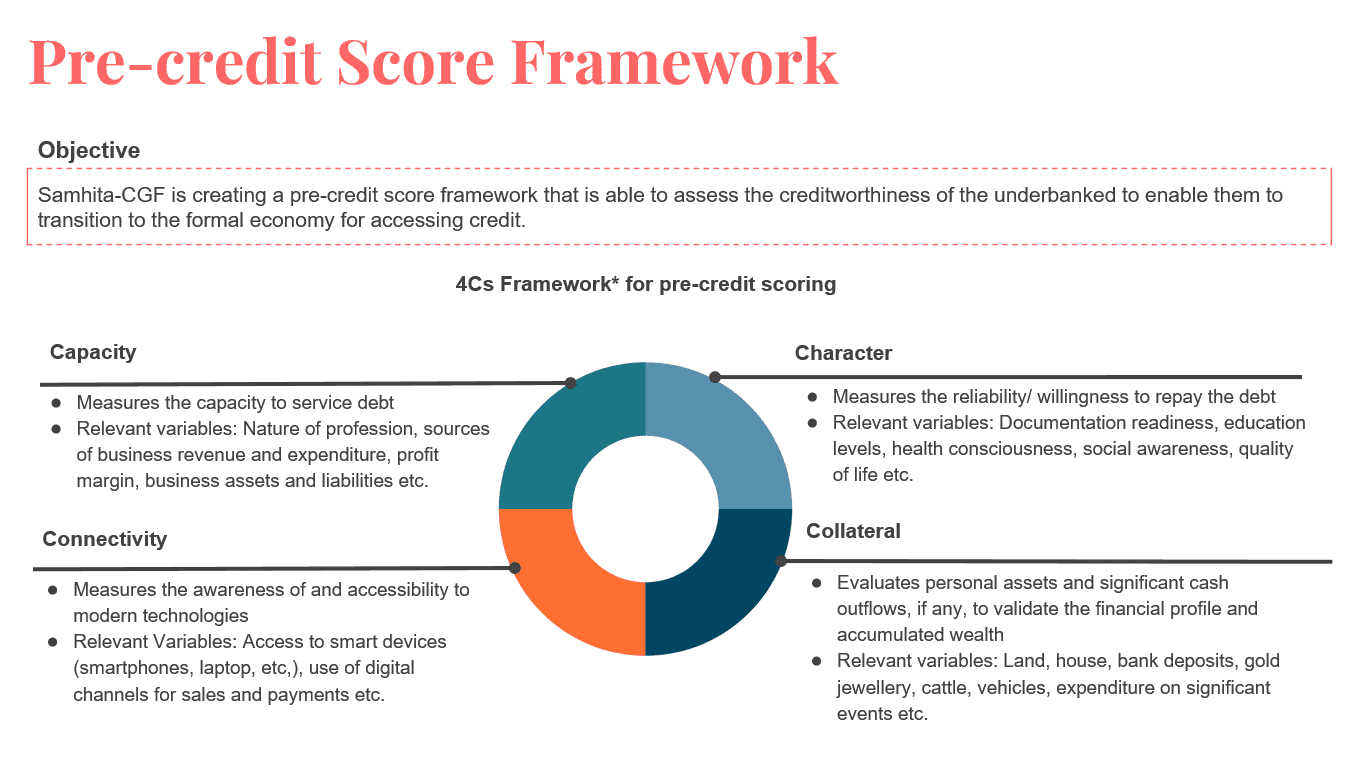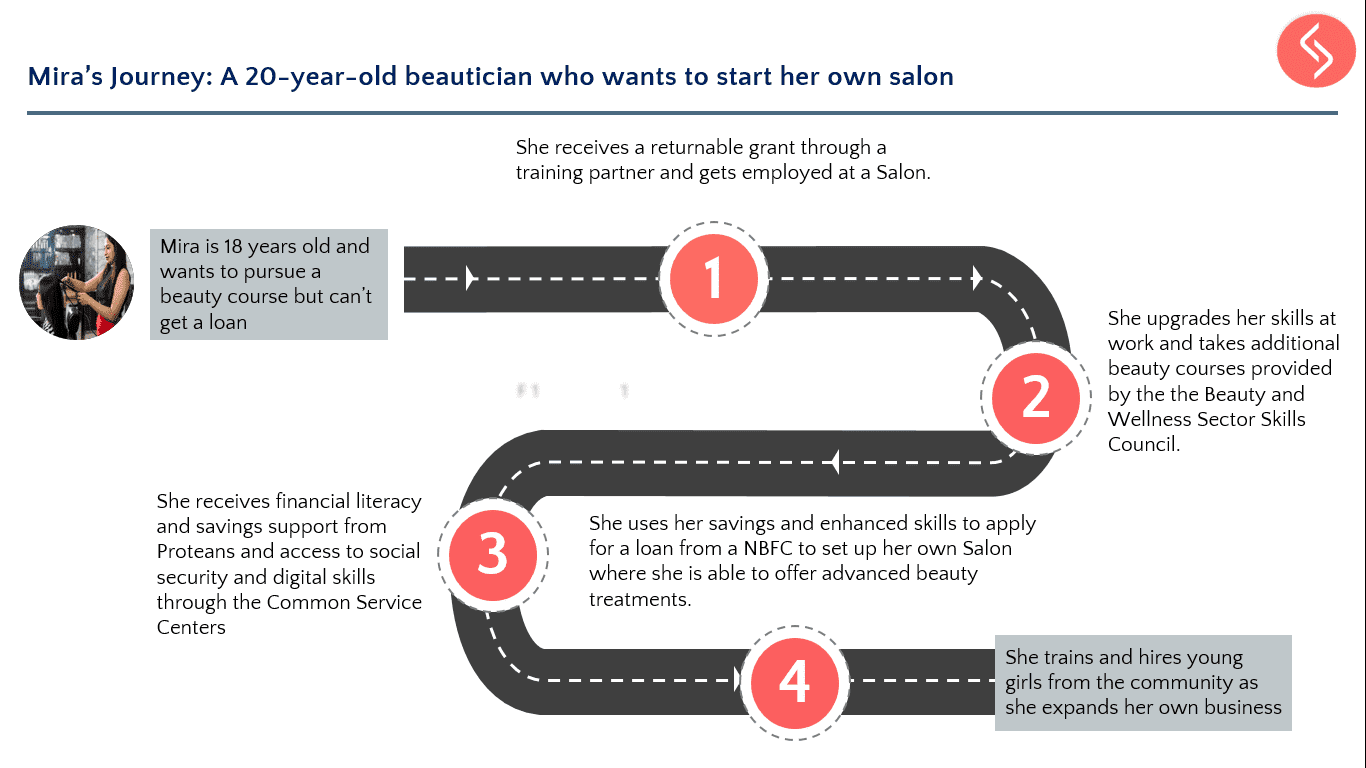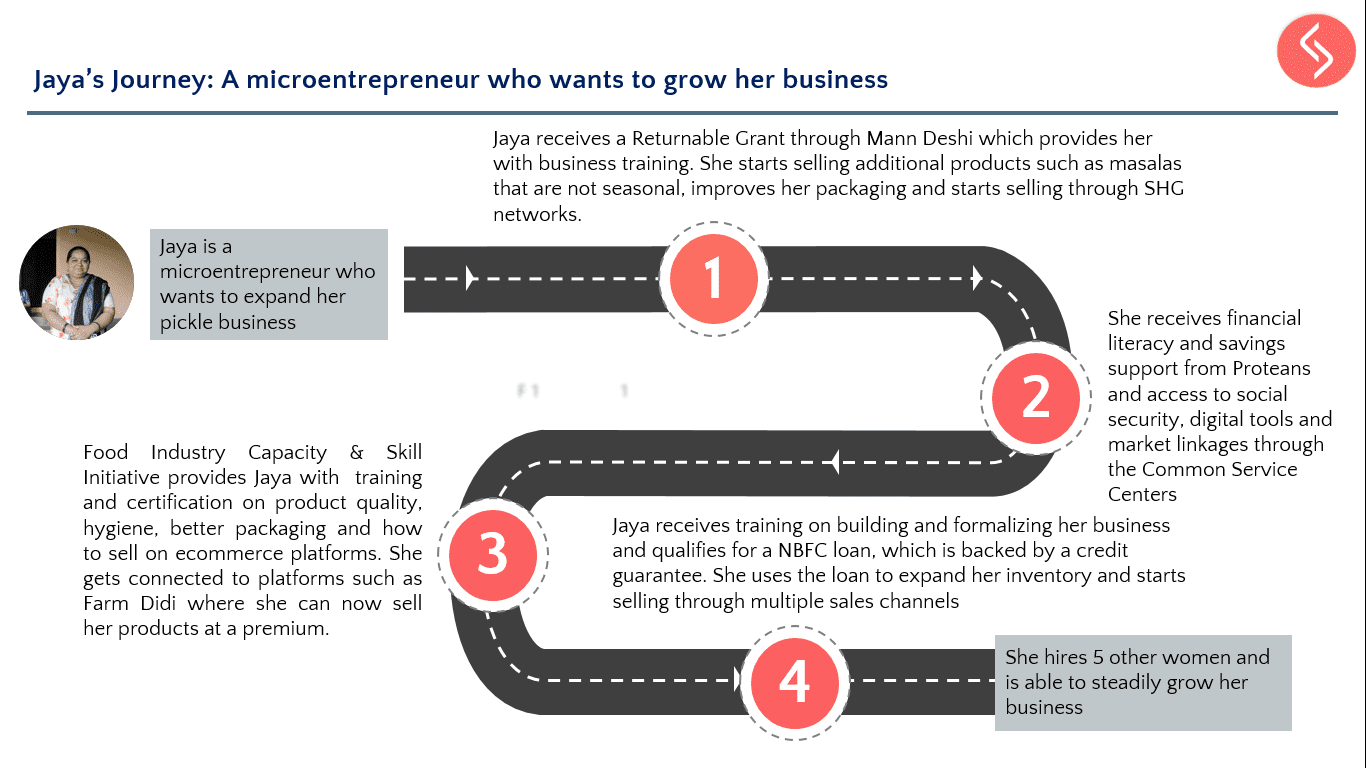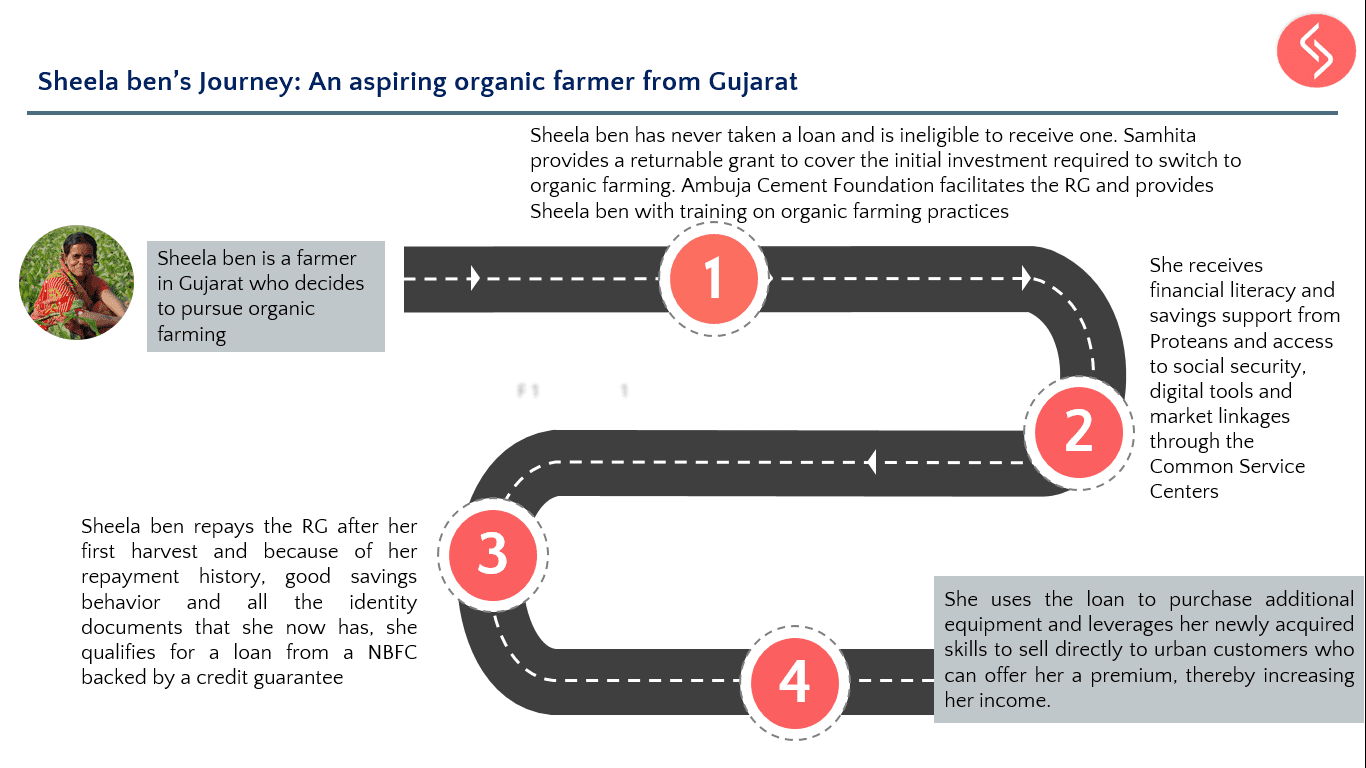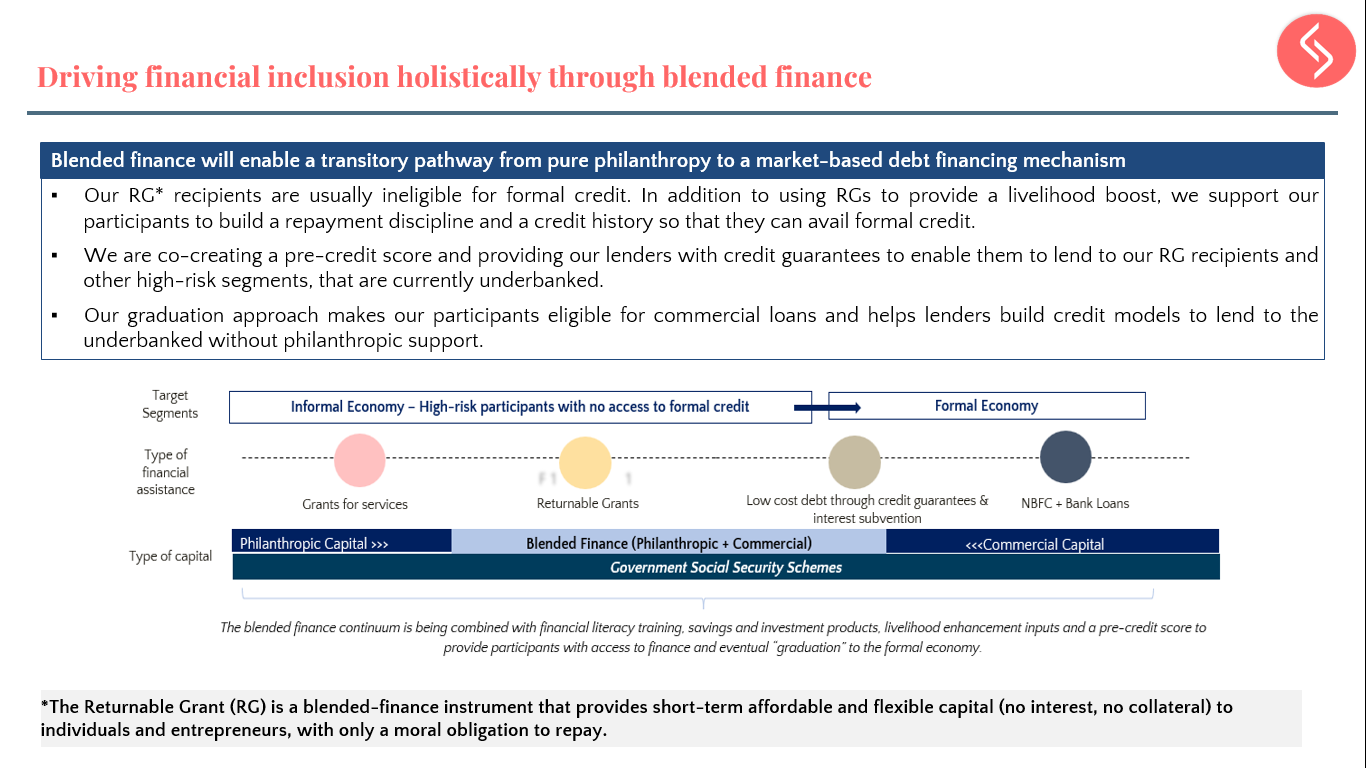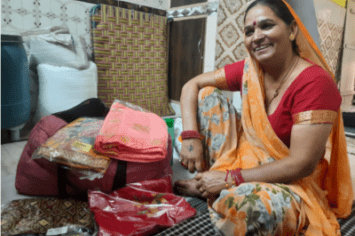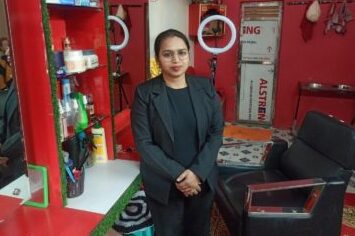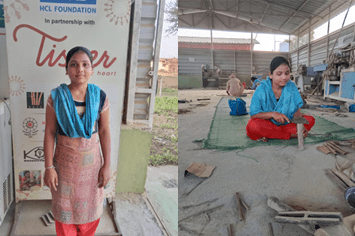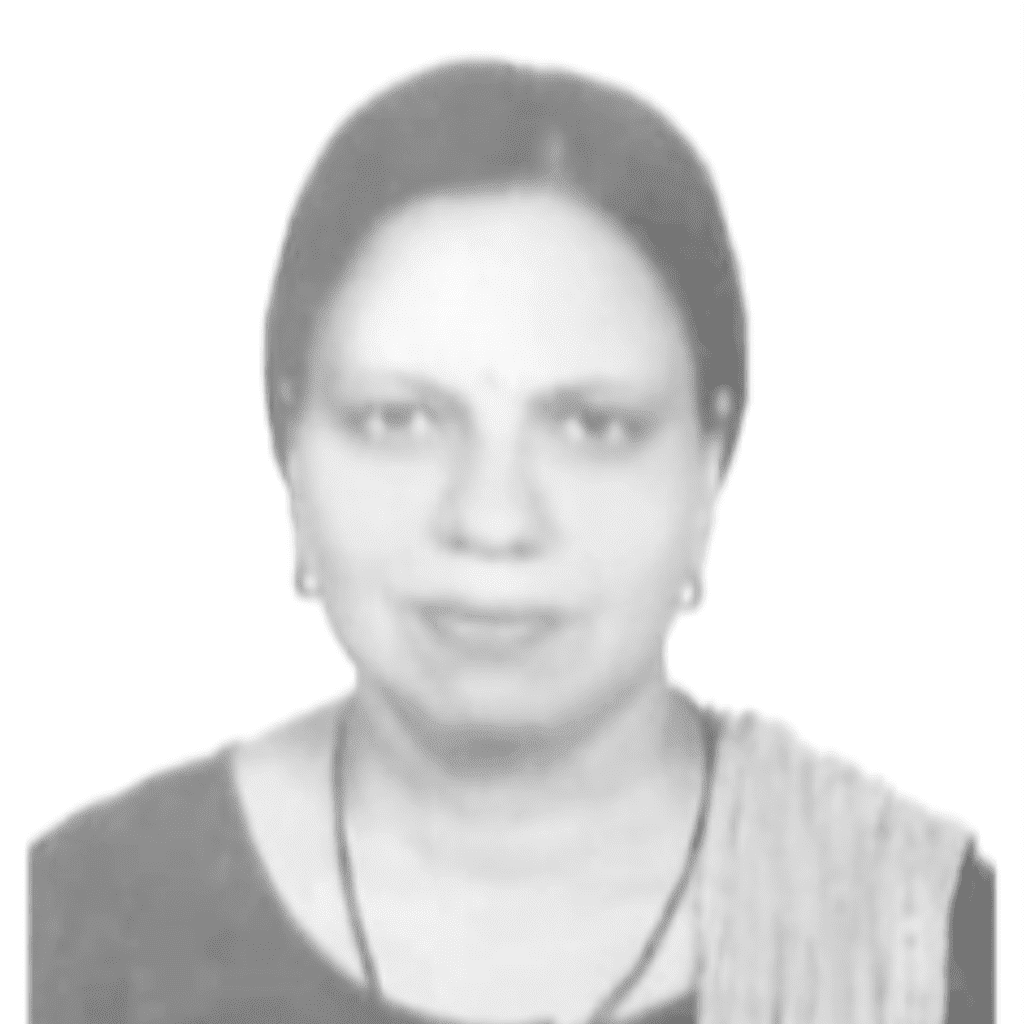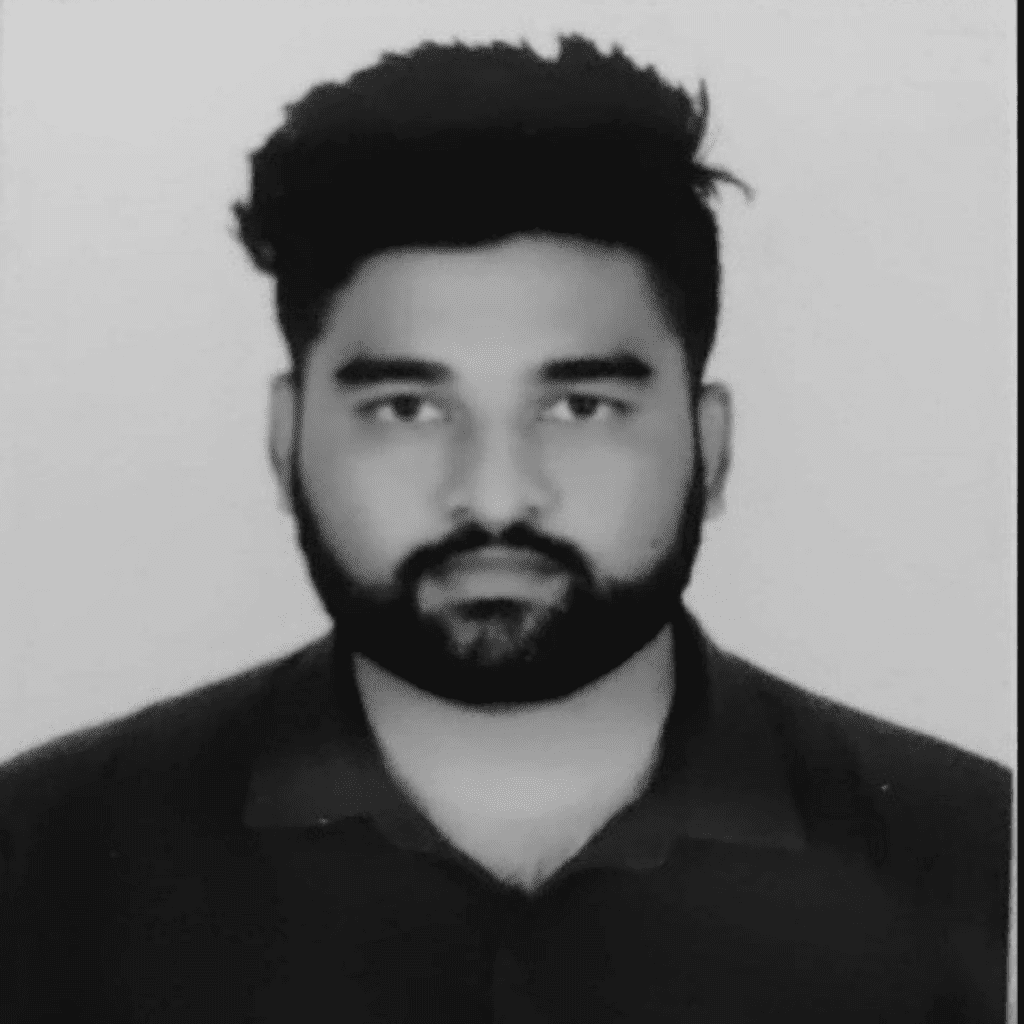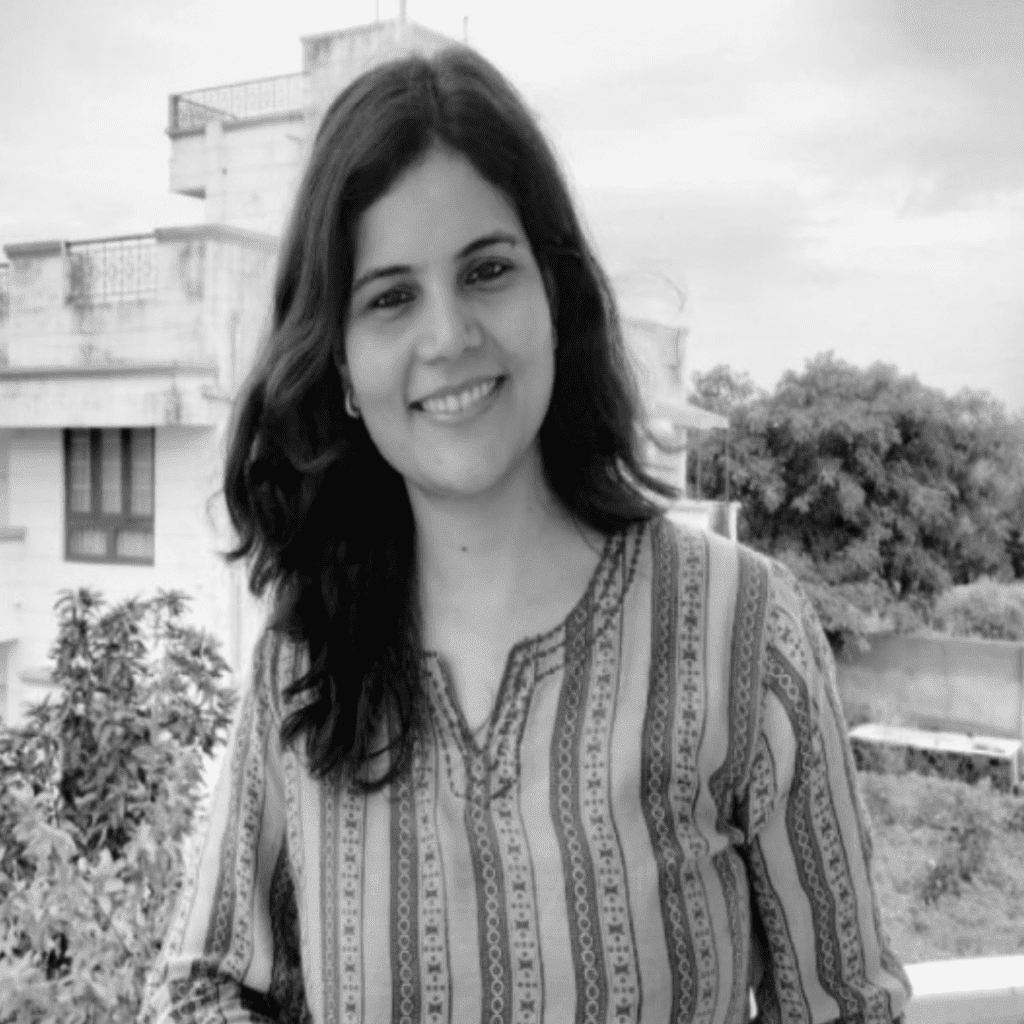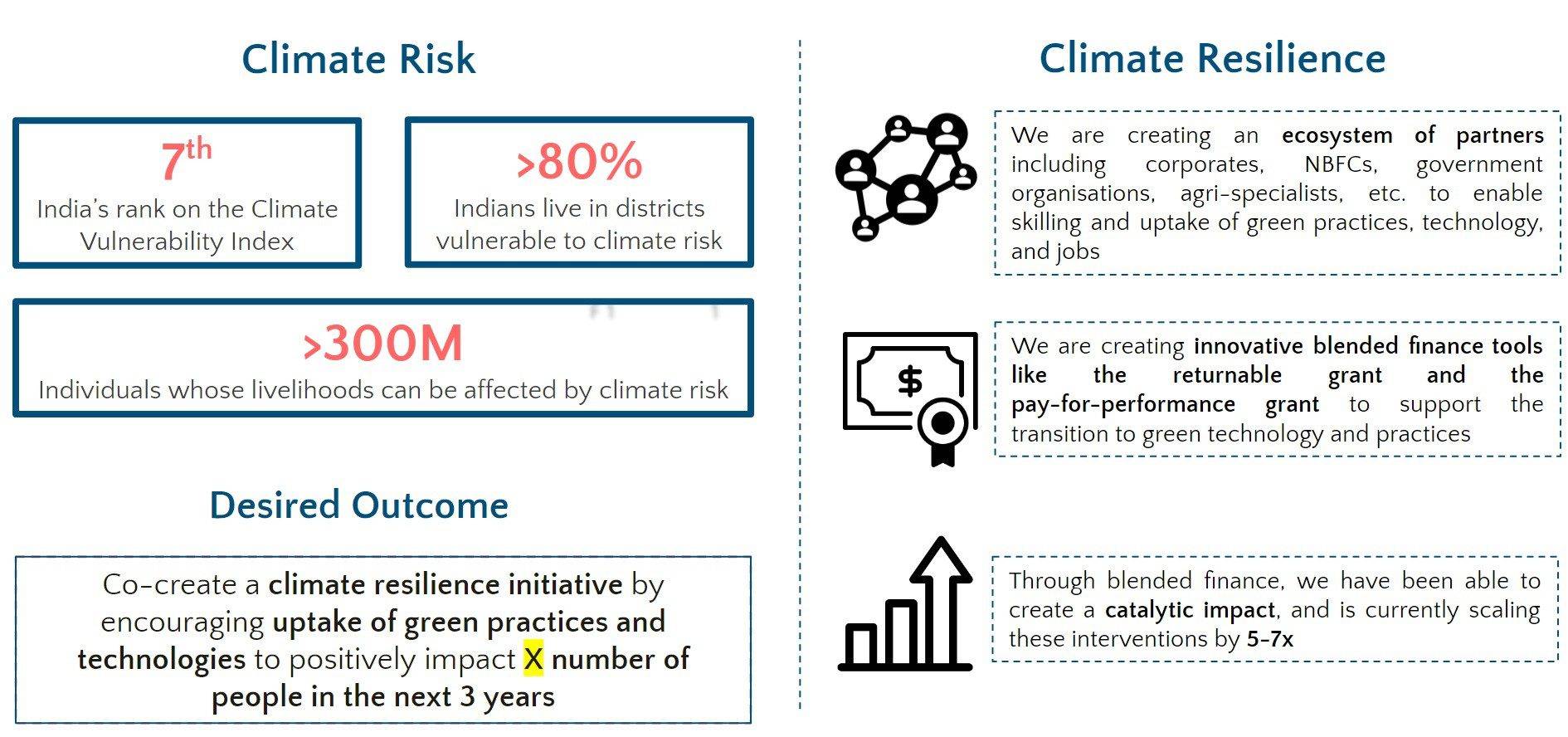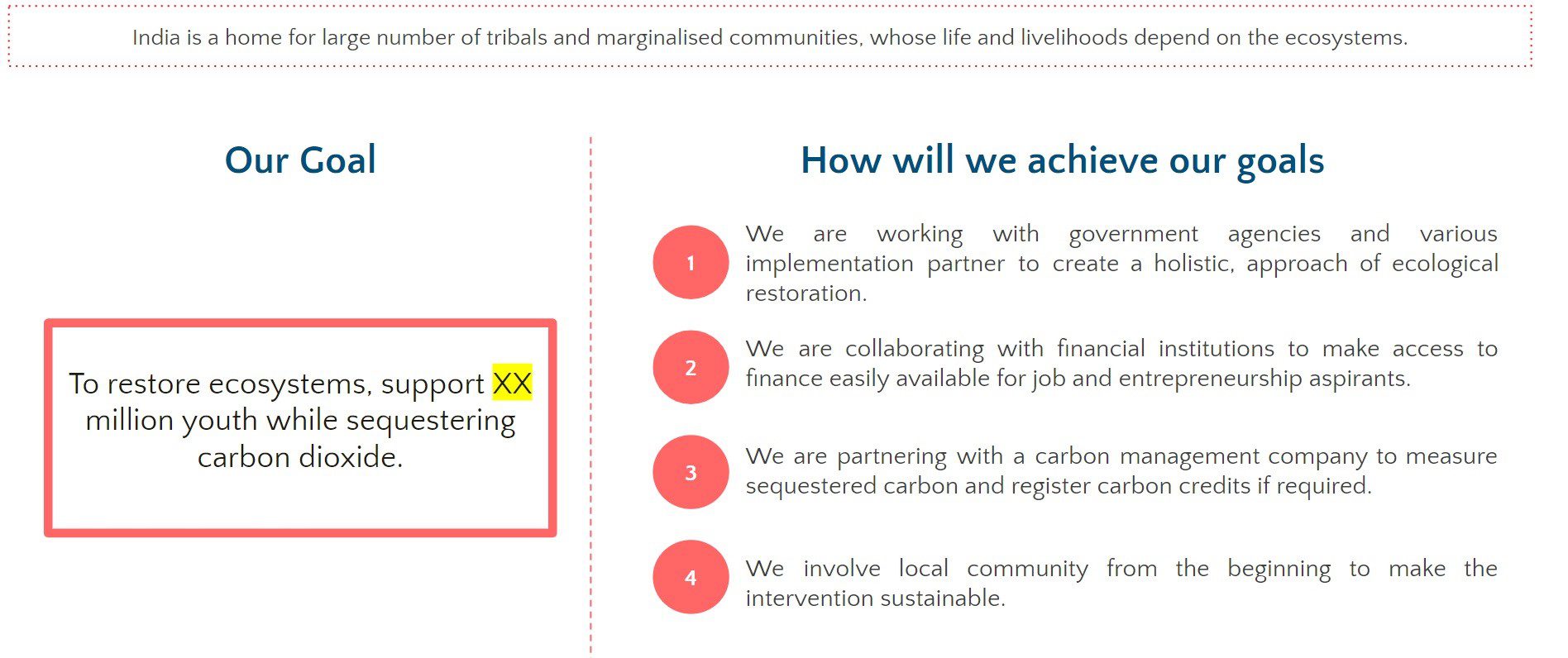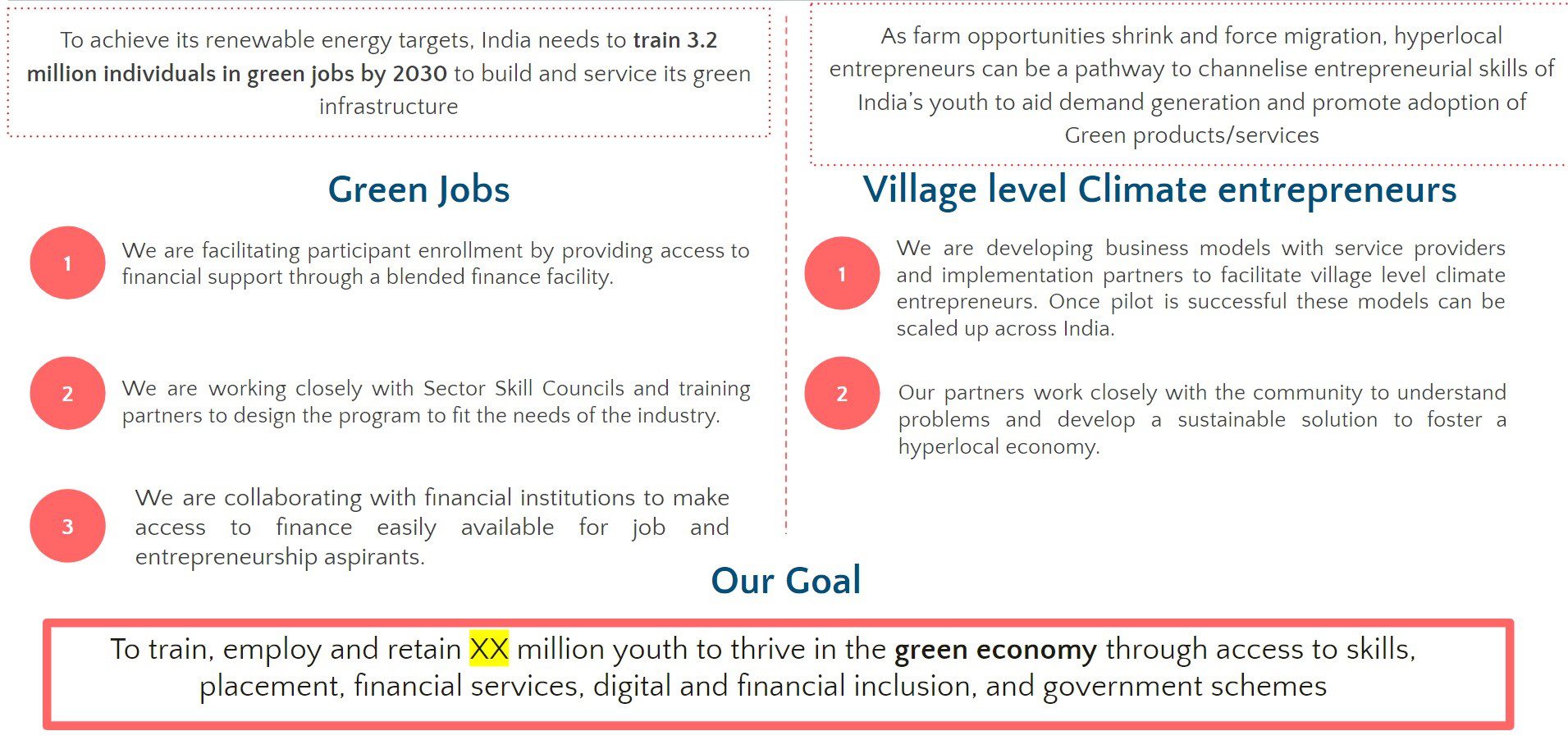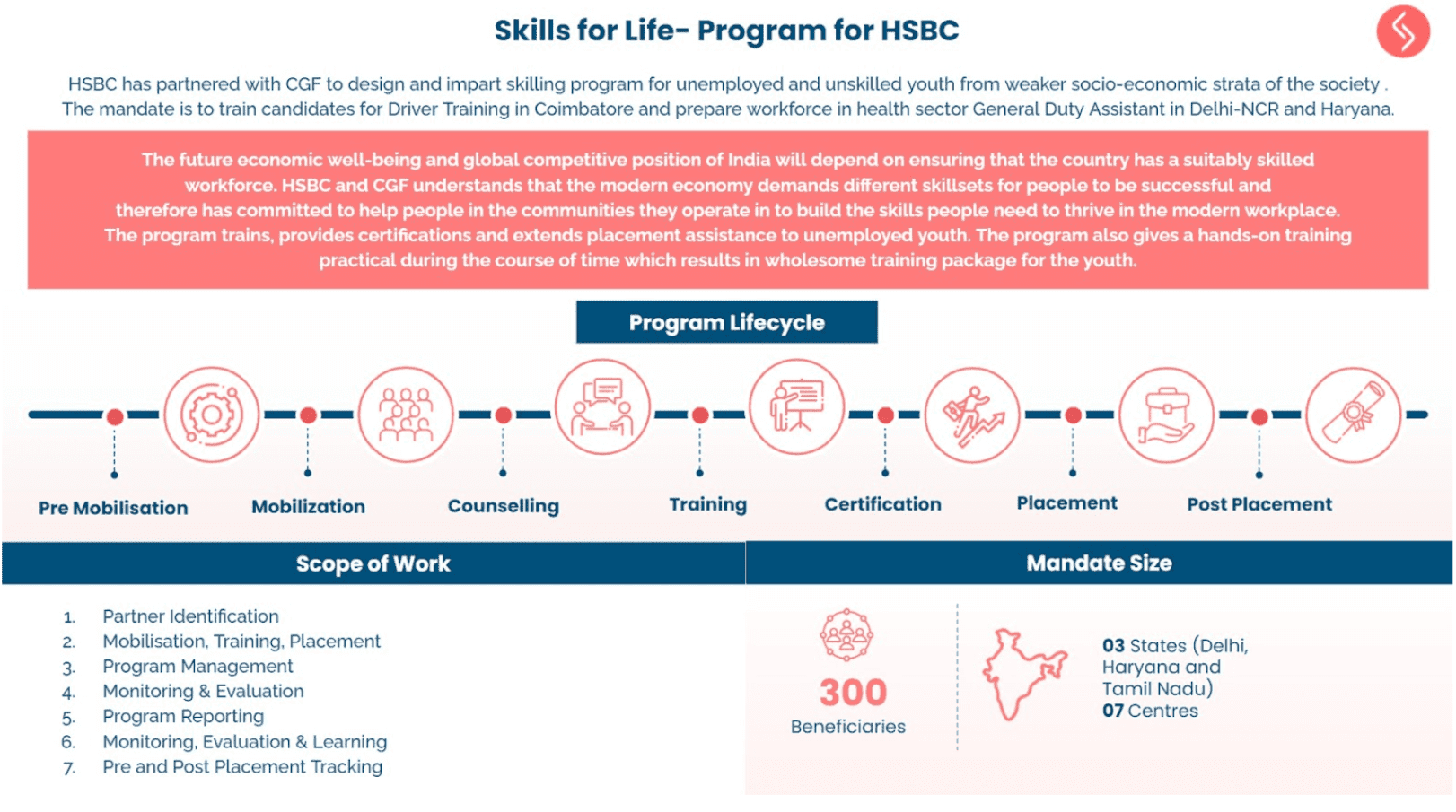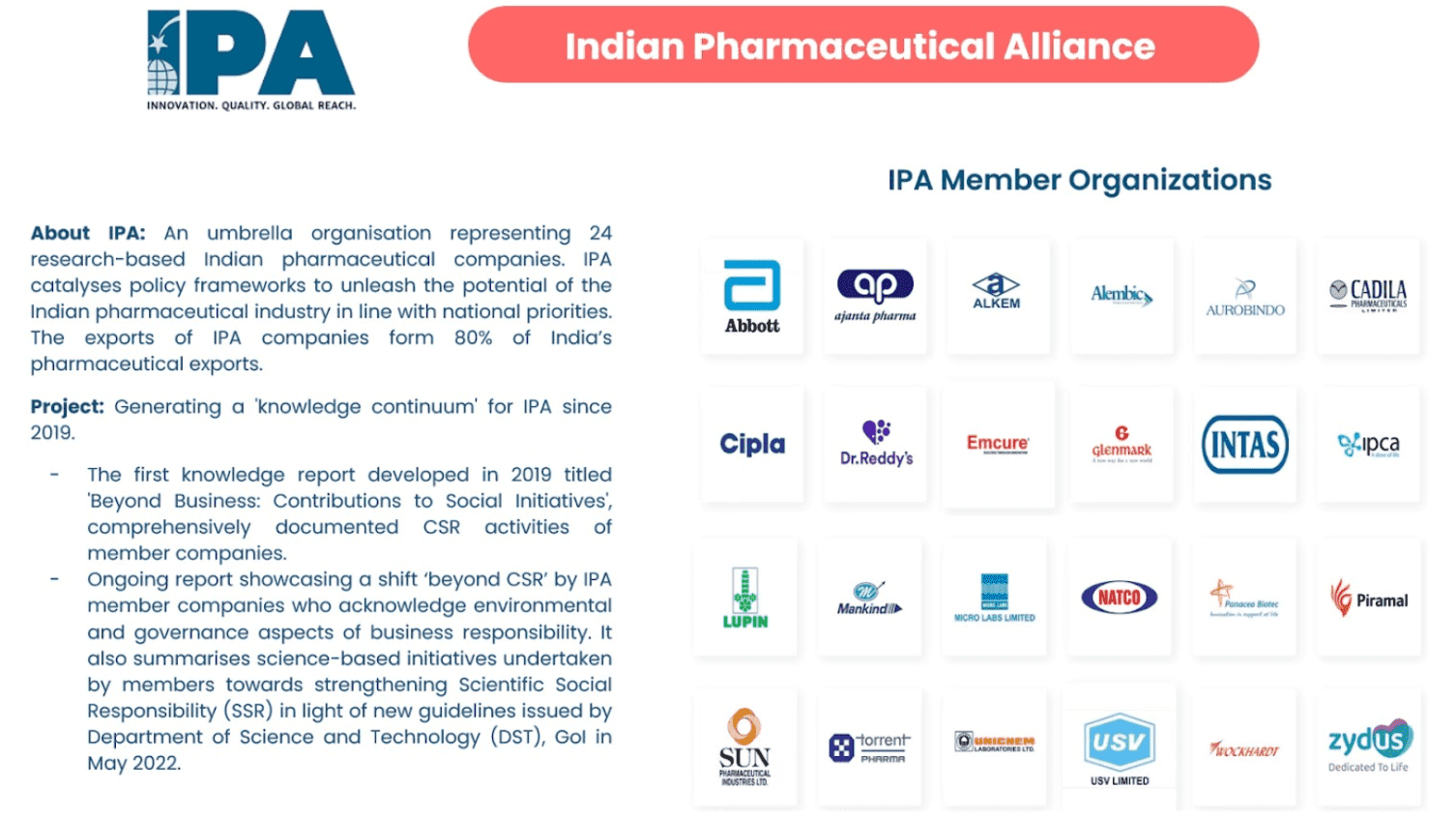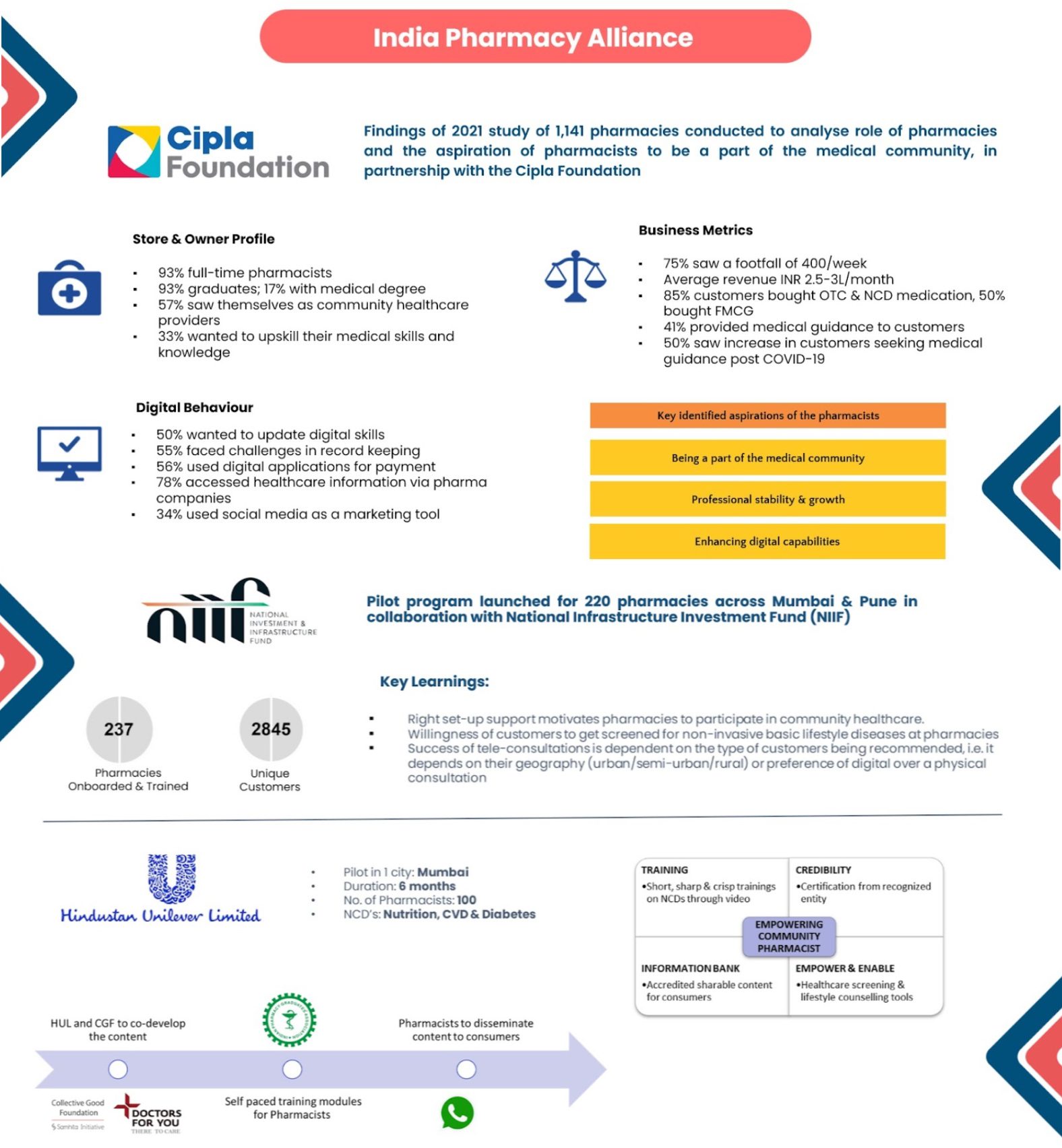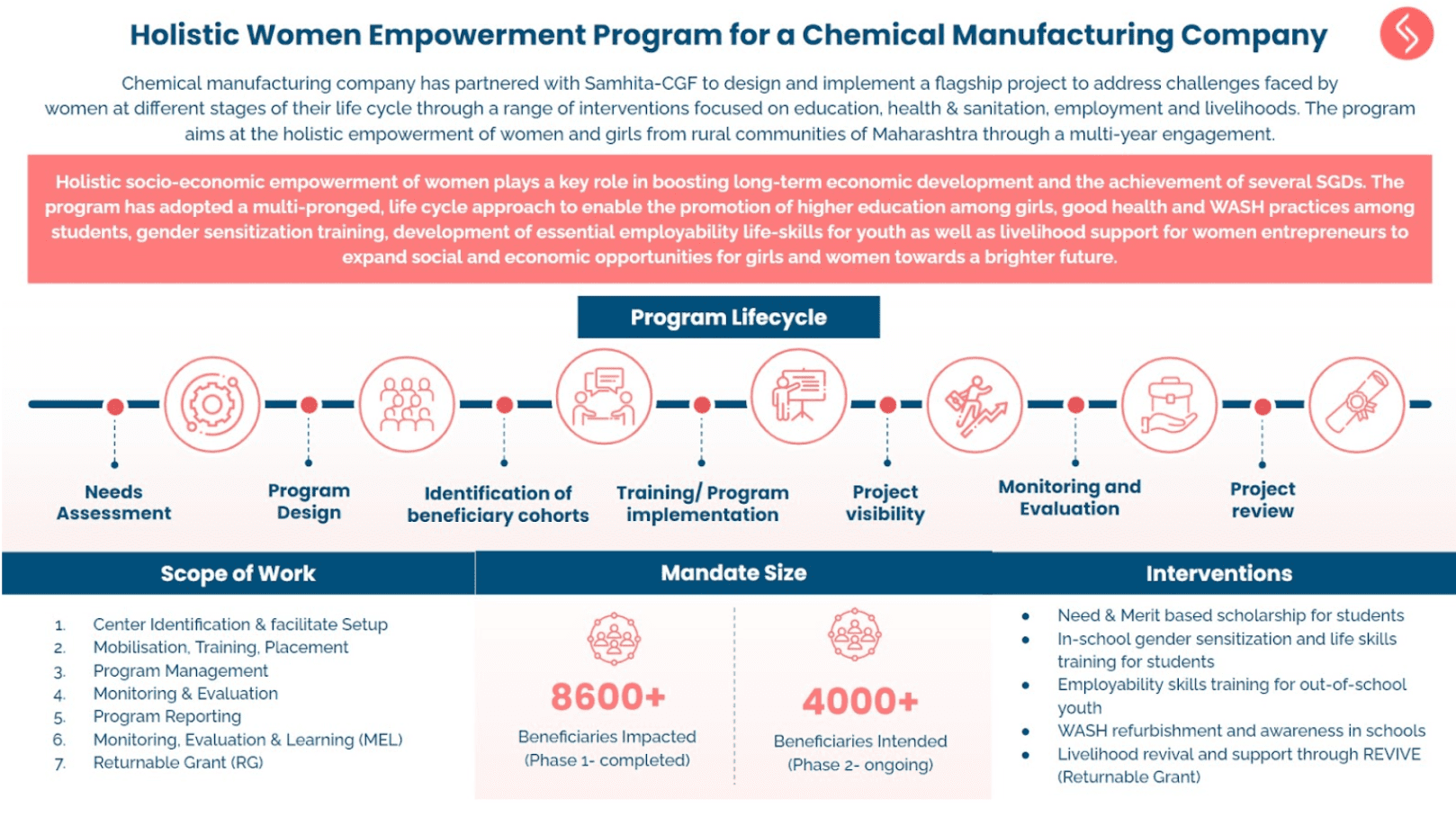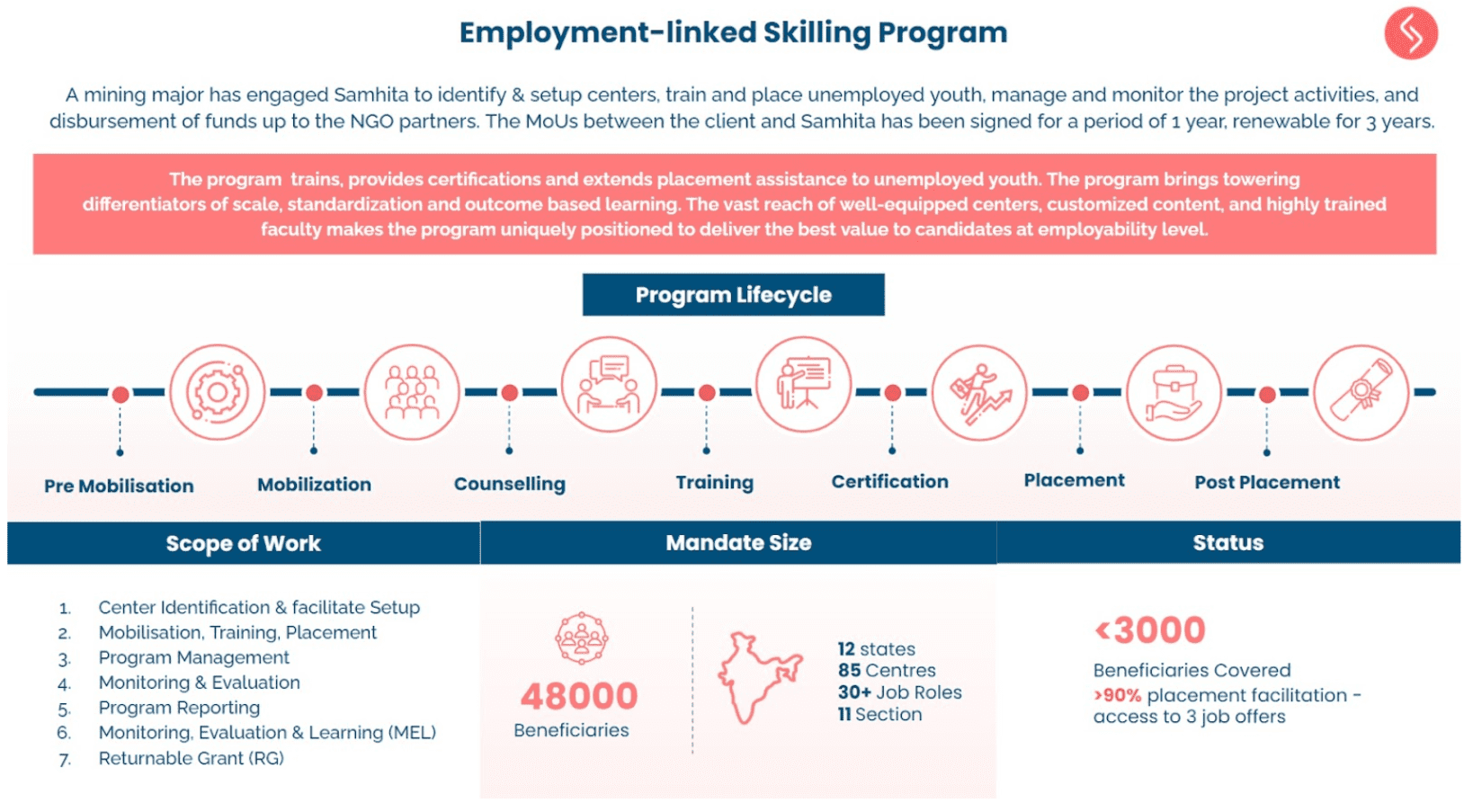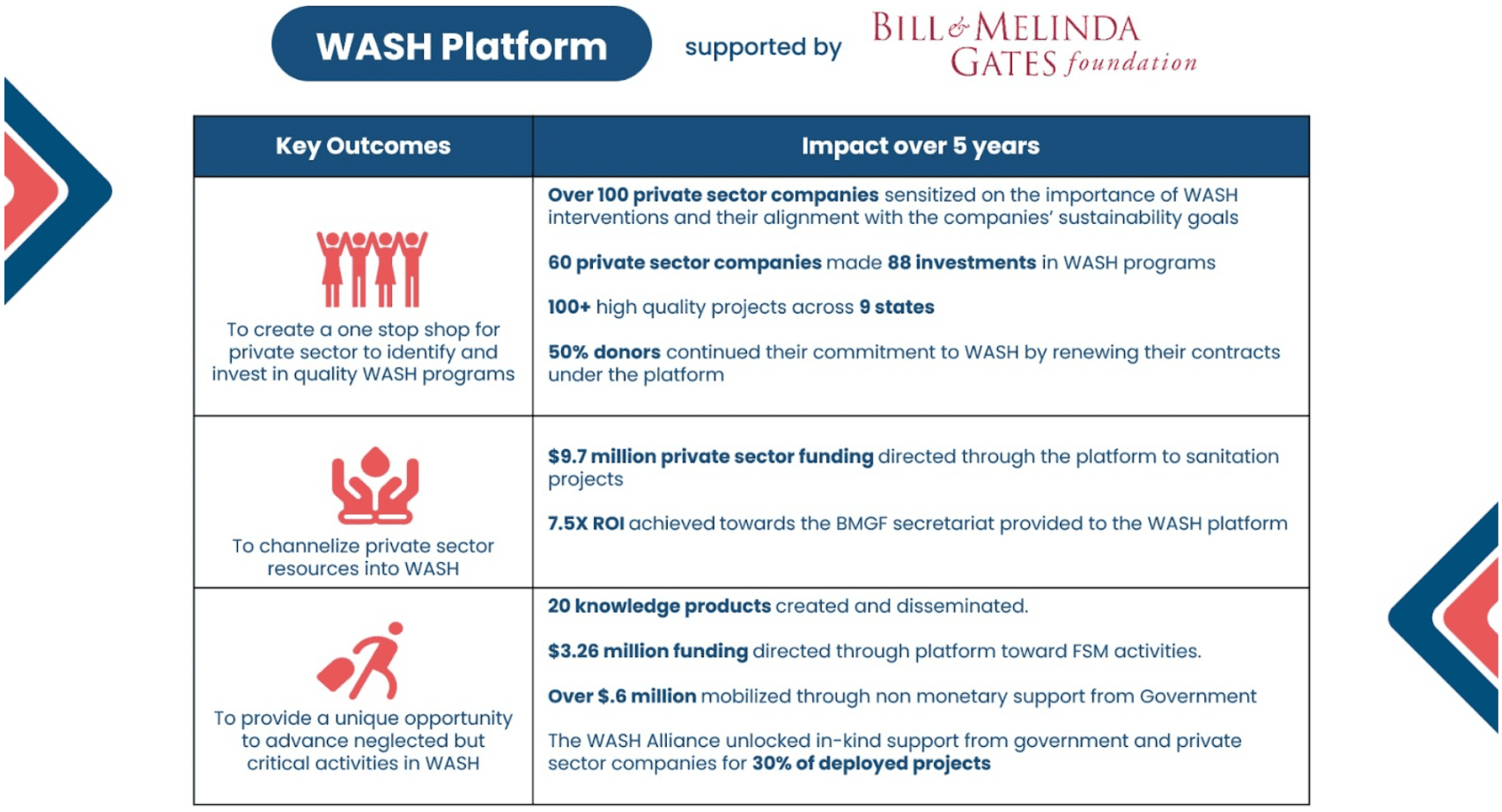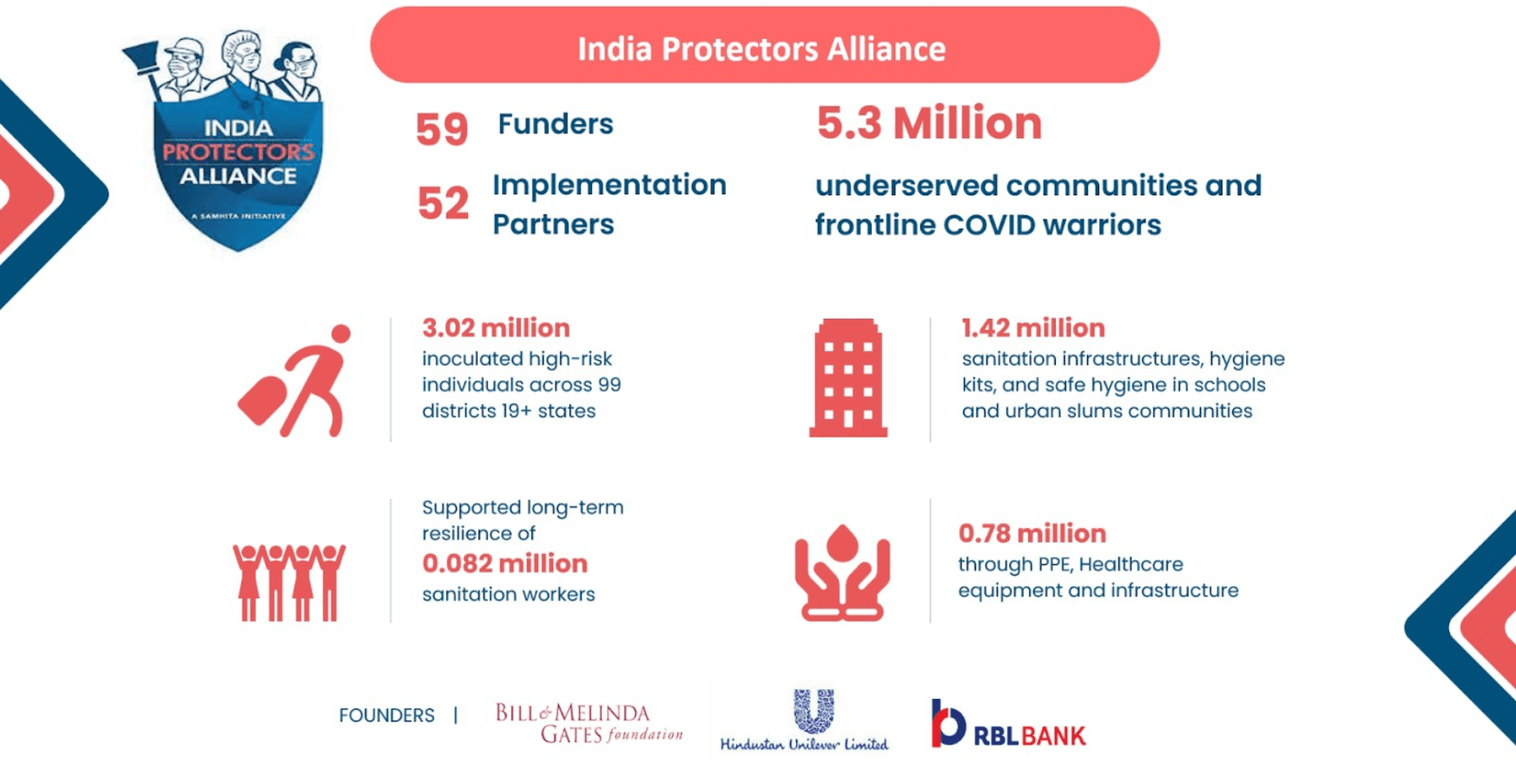Ambition in the Face of Adversity
Meet Ritu-ben, a nano entrepreneur and mother of two, who has not allowed the harsh effects of the pandemic deter her optimistic spirit and perseverance
30-year old Ritu-ben lives on the outskirts of Ahmedabad with her husband, mother-in-law and two mischievous sons. She studied only till class 5, after which she had to help her mother with domestic duties. Marrying young, she said, taught her many things that she couldn’t have learnt in school. In addition to being a supportive wife and a proud mother, Ritu-ben is also an entrepreneur.
“Three years ago, my friend took me to a bazaar where they sold all types of colourful sarees. I began to meet the weavers, sellers and traders to learn about the business. Shortly thereafter, I decided to set up my own business from home,” said Ritu-ben. She profits ₹30-50 from a saree sale.
Ritu-ben’s husband, Viren-bhai, is a street vendor. He sells fruits and vegetables that earn their family ₹200-300 per day. “My husband’s income is the main source to meet all our expenses — food and children’s education,” said Ritu-ben.
When COVID-19 swept across the country, Viren-bhai’s daily earnings were reduced by half. And Ritu-ben’s saree business? “That only gets us ₹300-400 every ten days in a good month. Right now, sales are near zero,” she revealed. Pandemics, after all, have never had any mercy.
During the lockdown, Ritu-ben and her husband received a tempo from SEWA (Self-employed women’s association) to help them transport their fruits and vegetables around town to sell them. The three-wheeled automobile was a boon for their family in a time of limited mobility. “For the two months that we had the tempo, we would go far and wide to ensure our products were sold. It was really life-changing for us,” said Ritu-ben.
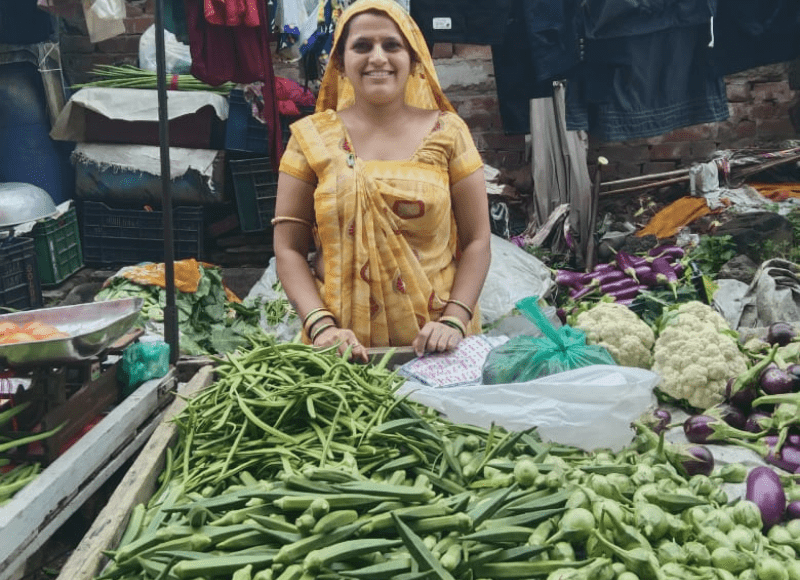
For the couple, the biggest household expenditures are their children’s education and healthcare expenses. In the past year, both of these have gone up for the family. Because the children now study through Viren-bhai’s smartphone, they have to spend a lot more money to recharge and upgrade their data plan. Her mother-in-law has also been unwell, warranting unexpected doctor visits and medical bills.
Due to rising household expenses and falling income, Ritu-ben decided to participate in Samhita’s finance facility REVIVE, supported by Brihati Foundation (CSR Foundation of Claris Group). She learnt about REVIVE’s zero-interest, no-collateral returnable grant from her advisor at SEWA. She received ₹10,000, which she said would be spent entirely on buying good quality fruits and vegetables. And maybe a few sarees, she added, giggling. “I’ve never felt the need to take a loan before because our financial health has never been so bad. However, if I can pay back this loan on time, I might consider taking another one in the future to grow my business,” said Ritu-ben.
Despite their precarious financial situation, Ritu-ben exudes unwavering optimism and cheery ambition. Once the circumstances are normal and safety concerns around the virus are mitigated, she wants to move her saree business out of her house and into a store in the market where more customers will be able to visit her. “I have a few ideas on what I will do with my saree store. Most importantly, I want to send both my sons to college. I will work hard to make sure I can do both,” said Ritu-ben.
